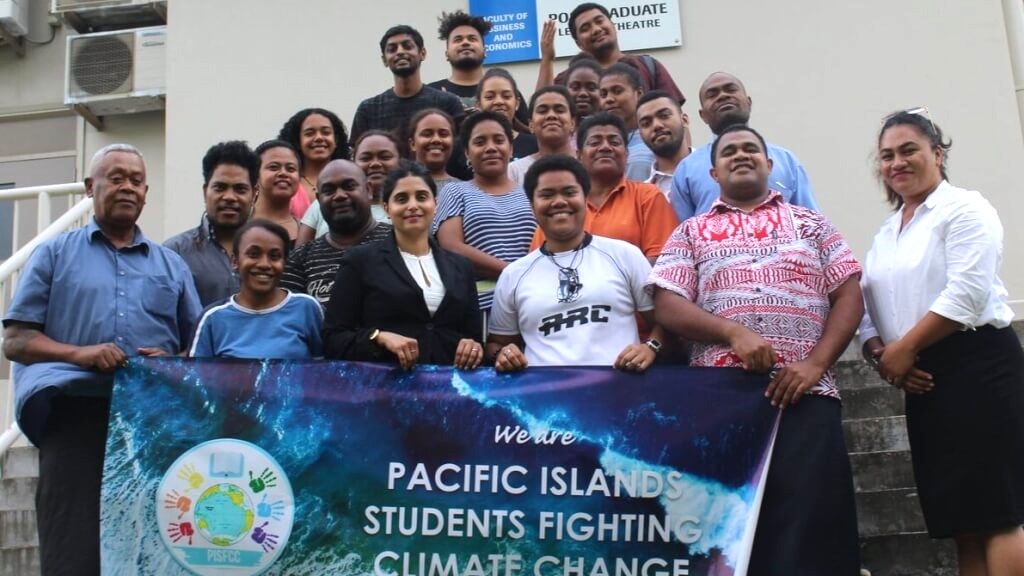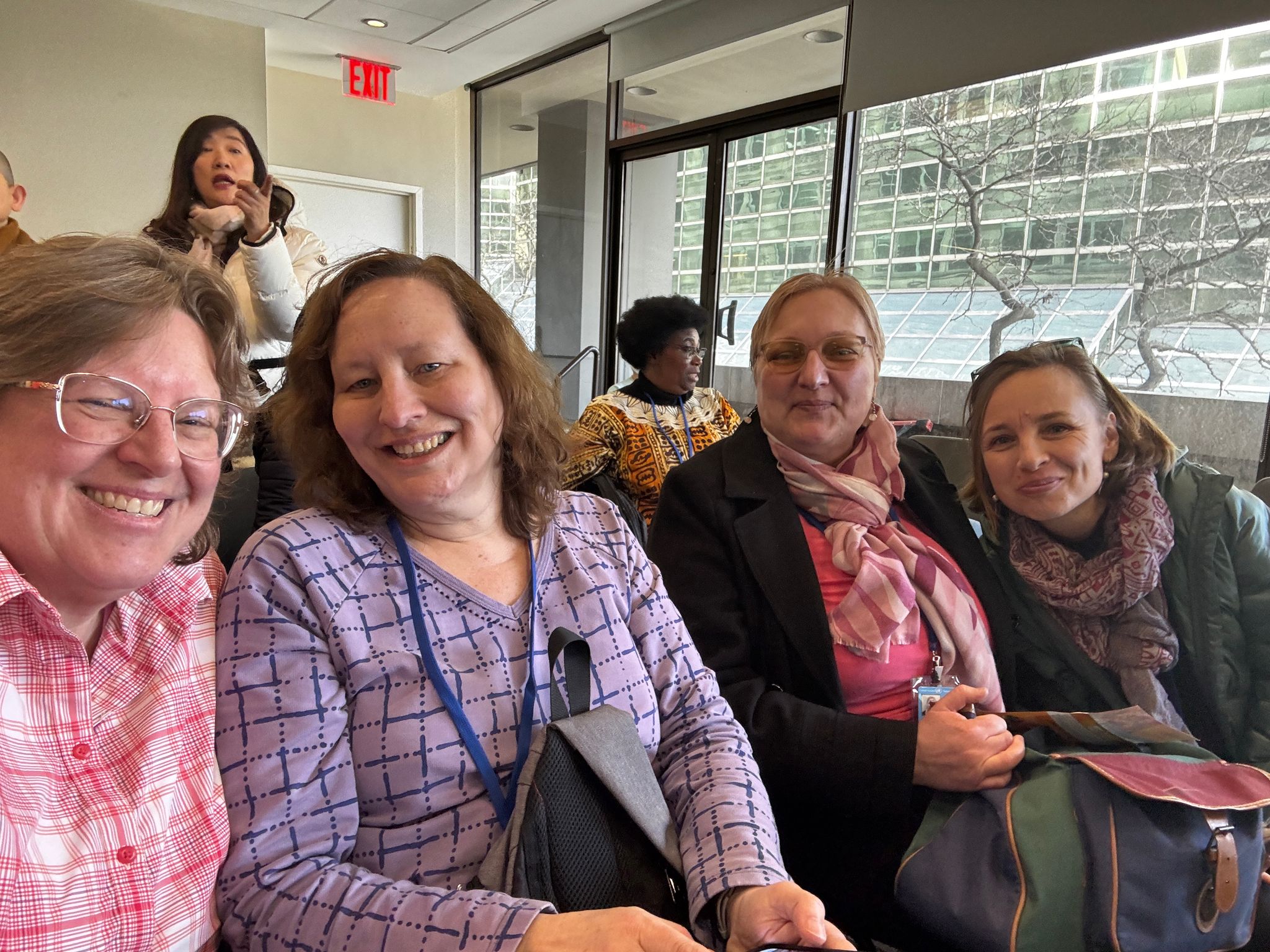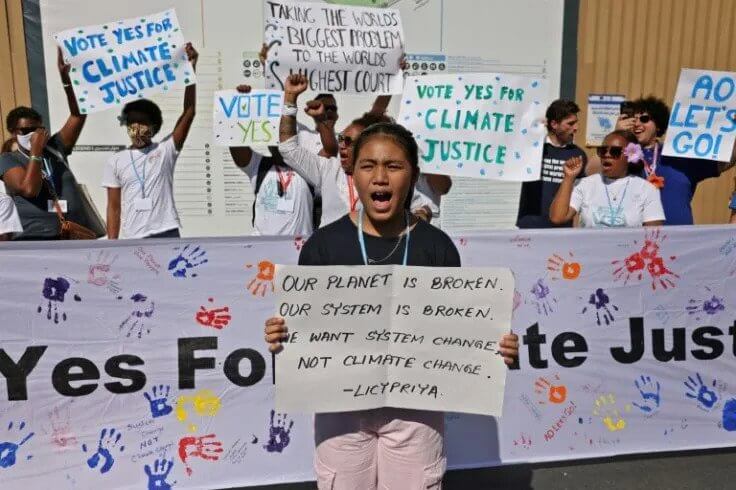On 26 July 2019, following a two-year complex and rigorous application process coordinated by former ICUUW business manager Karen LaFrance, the International Convocation of Unitarian Universalist Women (ICUUW) was granted special consultative status with the United Nations Economic and Social Council (ECOSOC).
The special status bestowed upon ICUUW confirms that the activities of the ICUUW are relevant to the work of the UN and invites the organization to actively engage with ECOSOC and its subsidiary bodies, as well as with the UN Secretariat, programs, funds, and agencies.
As an international women’s organization in special consultative status with ECOSOC, ICUUW contributes to the accomplishment of the goals and mission of the United Nations, advancing the achievement of the Sustainable Development Goals (SDGs), especially Goal #5 (SDG5): "Achieve gender equality and empower all women and girls."
At the same time, the special consultative status carries responsibilities and obligations: ICUUW commits itself to complying with the UN Charter and its principles, actively participating in UN meetings and events, and submitting a report on its activities in support of the work of ECOSOC and the UN once every four years.
ICUUW has had a sizeable presence at the annual sessions of the UN Commission on the Status of Women (CSW) in New York City since 2021. Please read more about CSW.
How do 193 countries work together at the United Nations, and what impact can a small but mighty organization like ours have? Here’s an example:
This true story starts with a single student: in 2019, Solomon Yeo was in his final year of law studies at the University of the South Pacific in Vanuatu, taking a course on international environmental law. Yeo was chatting with fellow law students about how they might someday help transform how the world tackles climate change. What if they could persuade the International Court of Justice to issue an advisory opinion on climate change? Such an opinion could clarify the international law around what responsibilities governments have to their citizens and other countries in relation to climate change. It could even define climate change as a human rights issue, similar to religious freedom or the right of education.
Law students from eight Pacific Island nations soon founded Pacific Islands Students Fighting Climate Change (PISFCC) and launched a campaign to persuade Pacific leaders to advance a UN General Assembly resolution seeking an advisory opinion on climate change and human rights from the International Court of Justice.
The Prime Minister of Vanuatu responded positively. Vanuatu is a UN member nation made up of roughly 80 islands in the South Pacific Ocean with about 200,000 inhabitants. Vanuatu then took the vision to the Pacific Islands Forum (PIF). Pacific Island nations are at risk of rising seas engulfing swathes of the islands. Scientists say both extreme weather and sea levels have worsened because of climate change caused by the burning of fossil fuels. Vanuatu then moved the initiative to the UN scene.

Vanuatu’s ambassador to the UN, Odo Tevi, talked to ambassador colleagues and friends looking for support of the initiative. Tevi approached Norway’s UN ambassador, knowing that Norway is the friend of small states. And he approached Germany, knowing that a lot of European countries were looking to Germany. A core group of nations from all different geographical regions (Antigua & Barbuda, Bangladesh, Costa Rica, Germany, Liechtenstein, Federated States of Micronesia, Morocco, Mozambique, New Zealand, Portugal, Samoa, Singapore, Sierra Leone, Uganda, Vietnam, and Vanuatu) started working together after the UNFCCC COP26 climate negotiations in Glasgow in 2021 and produced a zero-draft resolution in November 22. The initiative accelerated and support from other UN member states rose. The Heads of Government at the Thirty-Third Inter-Sessional Meeting of the Conference of Heads of Government of the Caribbean Community (CARICOM) indicated their support, as well as other inter-governmental groups such as the Organisation of African, Caribbean and Pacific States (OACPS).
In the meantime, the youth from PISFCC created a toolbox they shared with youth groups in many other countries so that these youth groups could lobby their governments to support the initiative. In 2022 they took their initiative to UNFCCC COP 27 in Sharm El-Sheikh where they provided a youth perspective on how international legal tools can achieve climate and ecological justice.
Support took many forms, including much letter-writing, and even a song [video]. This participatory process included informal consultations with a wide range of UN member States, as well as the active engagement of more than 1,700 civil society and youth groups across 130 countries.
And this is where we come in. Together with other religious organizations and people of faith, ICUUW sent a letter to the Special Presidential Envoy for Climate Change in The White House, John Kerry, asking for his support for the resolution, just before it was on the agenda at the United Nations General Assembly (UNGA) meeting on climate. 2023-03-28 ICJAO resolution faith based letter
UNGA adopted the resolution after more than 12 months of worldwide consultations. On March 29, 2023 the resolution requesting an advisory opinion of the International Court of Justice (ICJ) on the obligations of States in respect of climate change was adopted by UNGA and the request sent to the ICJ. The advisory opinion represents an opportunity to clarify the legal obligations of States with respect to climate change. For Vanuatu and supporters of the resolution, this is also a chance to spur transformative climate action, advance climate justice, and protect the environment for present and future generations.
Youth groups, national governments, inter-governmental organizations, and civil society organizations like ours worked together to move the world community towards better understanding its responsibilities regarding climate justice.

